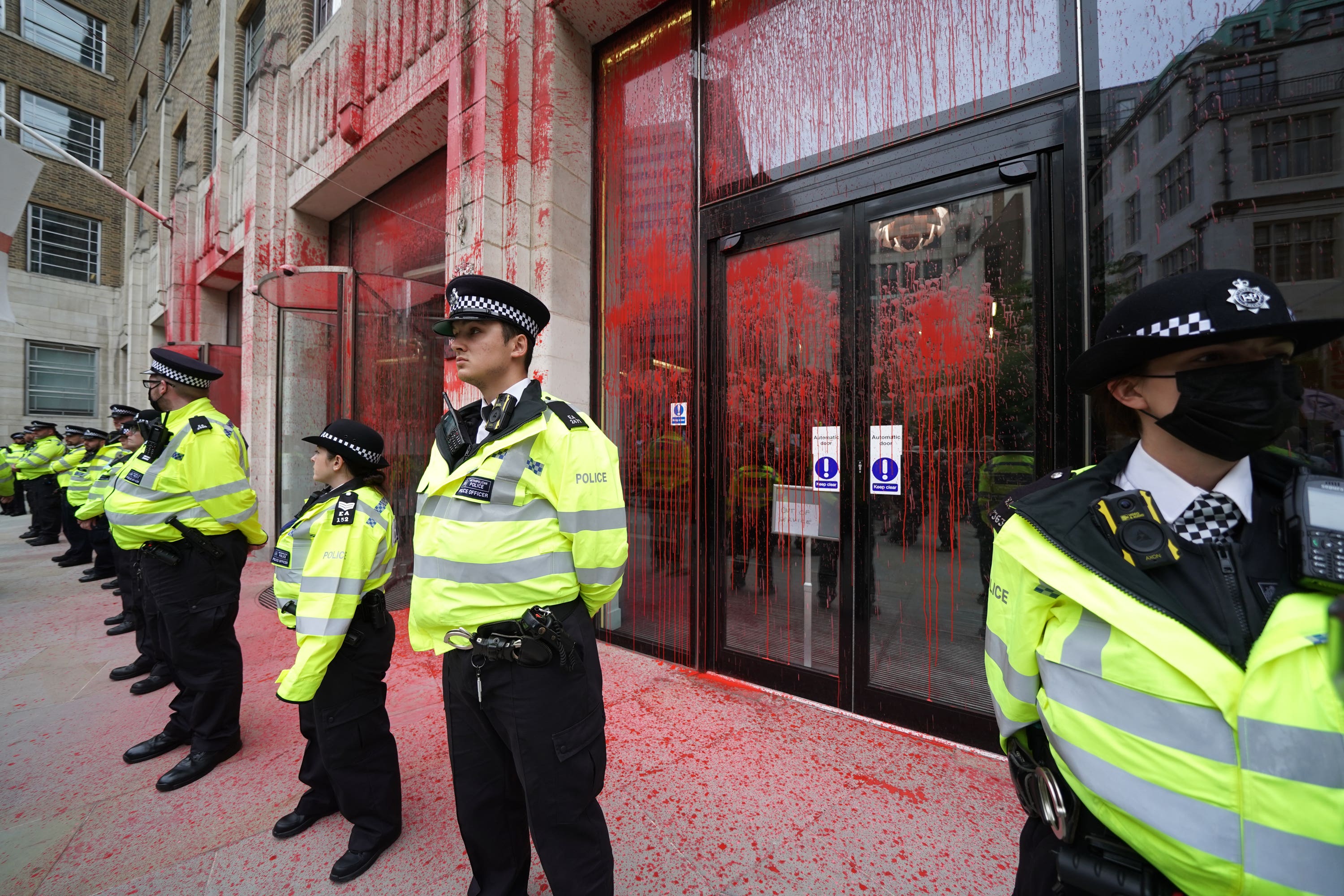Climate protesters do not have ‘carte blanche’ to damage buildings, court told
The Attorney General has asked the Court of Appeal to consider whether a legal defence can be used by climate protesters in criminal trials.

Climate campaigners accused of criminal damage do not have a “carte blanche” to damage property during protests and should not walk free from trials due to the law being applied “too broadly”, the Court of Appeal has heard.
Some protesters charged with criminal damage have been cleared by juries after using a defence that they honestly believed a property owner would have consented to damage caused if they had been fully aware of its “circumstances”, such as the impact of climate change.
Attorney General Victoria Prentis asked the Court of Appeal to consider whether the defence could be used last year after a jury cleared a climate protester, identified as XX for legal reasons, who used the argument at trial.
We submit that (the law) is being used in a way that was not envisaged and indeed was not intended by Parliament. It leads to the conclusion that this law is being interpreted too broadly and in reality wrongly
Dozens of protesters staged a sit-in demonstration in the Royal Courts of Justice during the hearing in London on Wednesday, claiming the legal bid was an attempt to remove protesters’ “last line of defence”.
Several protesters remained sat on the floor until after the building closed to the public.
Many were later seen being carried out of the building by security guards.
Tom Little KC, representing the Attorney General’s Office, said that the defence should not have been used in XX’s case and was being used “wrongly”.
He said: “We submit that (the law) is being used in a way that was not envisaged and indeed was not intended by Parliament.
“It leads to the conclusion that this law is being interpreted too broadly and in reality wrongly.
“The fallacy of leaving this defence to the jury in many but not all of these cases is really the risk or danger is what is being focused on is whether (the property owner) could have consented, rather than whether they would have consented.”
The outcome of the case will not affect acquittals in previous trials but will impact whether protesters can use the defence in future cases.
Even if the merits, urgency or importance of a religious, political or moral cause were capable in principle of being 'circumstances' ... they would be too remote from the damage caused in any case of direct action to constitute 'circumstances' of the damage
Mr Little told three judges that the law protects the right to protest, but “not in a totally freestanding or freewheeling way”, and did not offer a “carte blanche” for property to be damaged.
He said in written arguments: “Even if the merits, urgency or importance of a religious, political or moral cause were capable in principle of being ‘circumstances’, contrary to the Attorney General’s primary submission, they would be too remote from the damage caused in any case of direct action to constitute ‘circumstances’ of the damage.”
The Attorney General, who was not present in court, ordered a review of how the law was applied last December, stating that it was “important that the law is clear and fairly applied”.
Henry Blaxland KC, representing XX, said that deciding on whether the argument could be used was “a matter for the jury”, adding it was a “line that cannot be crossed” to take the decision away from jurors.
Stopping a jury from hearing why people did what they did does not help the jury decide where the boundaries are and whether an action is justified
He said: “It is material whether a belief is justifiable if it is honestly held.
“The consequence is that where the defence was raised, the sole question of fact for the jury is whether the defendant had an honest belief that the owner of the property would have consented to the damage caused.
“It is not for the jury to determine whether the belief has merit,” he added.
“It is a question of whether or not the defendant genuinely believed it.”
Tim Crosland, a former barrister and director of the climate charity, Plan B, who attended the demonstration inside the Royal Courts of Justice, said that the argument was the “last line of defence” for protesters.
We know how important this case is and we know its importance to many people, for different reasons. We will get on with it as quickly as we can, but there is a lot for us to think about
He told the PA news agency: “The Attorney General is trying to remove the last line of defence.
“The impact of that will be juries don’t get to hear about people’s motivations.
“Stopping a jury from hearing why people did what they did does not help the jury decide where the boundaries are and whether an action is justified.”
The Lady Chief Justice Baroness Carr, who heard the case with Lord Justice William Davis and Mr Justice Garnham, told the court that a judgment would be given at a later date.
She said: “We know how important this case is and we know its importance to many people, for different reasons.
“We will get on with it as quickly as we can, but there is a lot for us to think about.”
